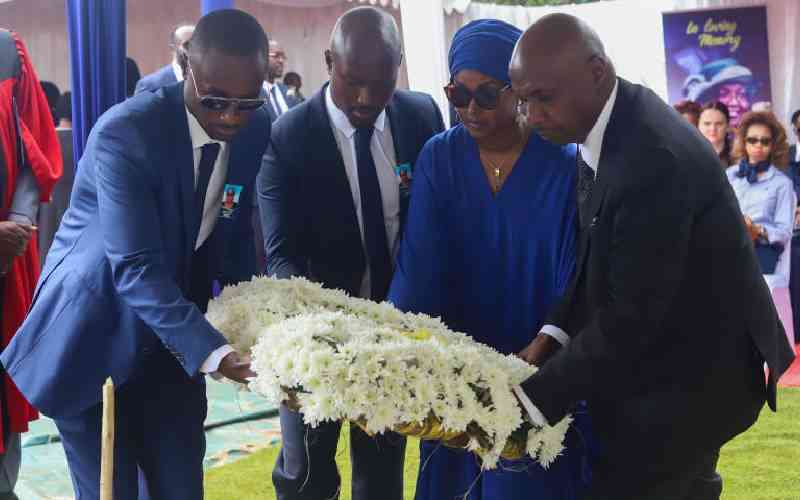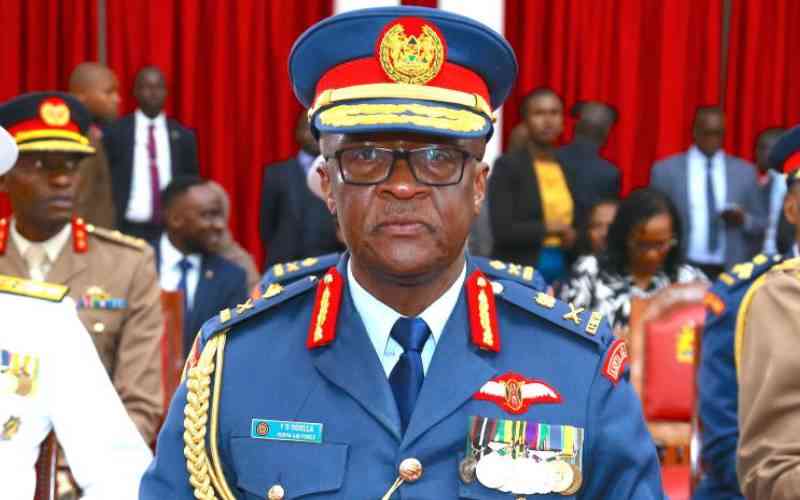Kiambu, Kenya: As road accidents continue to take toll on Kenyans, children in schools on our major highways bear the greatest brunt.
It is against this reality that the World Health Organisation (WHO), in partnership with other players in road safety, has come up with interventions to help save young road users.
Through the Road Safety in Ten Countries (RS10) programme, WHO is taking steps to ensure that school children are safe when using roads.
The approach makes use of what WHO coordinator for road safety programme Abdella Kunuz says are lollipops, pedestrian crossing as well as encouraging the use of reflective jackets and helmets while on highways trekking to school.
Various challenges
He says school children are vulnerable because they have various challenges.
“Children have a low attention span, poor judgement and challenges with mobility which predisposes them to road crashes,” Dr Kunuz says.
And here is where the campaign to have children in schools on or near highways carry reflective bags comes in.
The campaign targets learners from Class One to Class Four. These learners have received bags that reflect light, thus making them more visible while on the roads.
General Kago and Kuraiha primary schools, which have in the past borne the pain of learners being killed, are two schools in this programme.
General Kago is on the busy Thika-Garissa highway while Kuraiha is on the Thika Superhighway. Both schools have lost learners to road accidents.
Before these interventions, Edwin Oloo from the Ministry of Education headquarters in Nairobi says there was an average of four deaths of pupils daily along the Thika and Naivasha highways.
Francis Chege, the head teacher of General Kago, agrees. He says since the road safety campaign started in 20 schools on the two major highways last year, the school has lost only one pupil.
“She was knocked while crossing the road at a pedestrian crossing since the offending driver disregarded her right as a pedestrian,” says Mr Chege.
Marked decrease
Stay informed. Subscribe to our newsletter
Oloo says having parents accompanying their children, schools employing traffic marshals to guide children, and erection of speed rumps and footbridges near schools are also being considered.
Parliament was also brought on board with the drafting of The Traffic (Amendment) Bill 2014, sponsored by Laisamis MP Joseph Lekuton.
The Bill has a raft of measures that are designed to reduce accidents near schools.
Among the measures proposed is the need to have speed calming measures near schools. The Bill also proposes fixed fines for different levels of exceeding the set speed limit.
Dr Kunuz says many schools are located on highways where children have to cross daily, risking their lives in the process. The risk has its effect on the education of the children.
Kunuz says most parents hold back their children at home until they are old enough to cross these roads to go to school.
As a way of evaluating the effectiveness of the reflective bag project, schools were provided with log books to register cases arising from crashes.
Kunuz says an inventory showed marked decrease in crashes.
 The Standard Group Plc is a
multi-media organization with investments in media platforms spanning newspaper
print operations, television, radio broadcasting, digital and online services. The
Standard Group is recognized as a leading multi-media house in Kenya with a key
influence in matters of national and international interest.
The Standard Group Plc is a
multi-media organization with investments in media platforms spanning newspaper
print operations, television, radio broadcasting, digital and online services. The
Standard Group is recognized as a leading multi-media house in Kenya with a key
influence in matters of national and international interest.
 The Standard Group Plc is a
multi-media organization with investments in media platforms spanning newspaper
print operations, television, radio broadcasting, digital and online services. The
Standard Group is recognized as a leading multi-media house in Kenya with a key
influence in matters of national and international interest.
The Standard Group Plc is a
multi-media organization with investments in media platforms spanning newspaper
print operations, television, radio broadcasting, digital and online services. The
Standard Group is recognized as a leading multi-media house in Kenya with a key
influence in matters of national and international interest.







